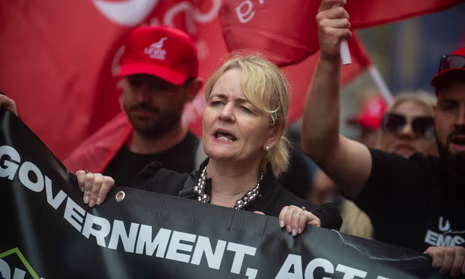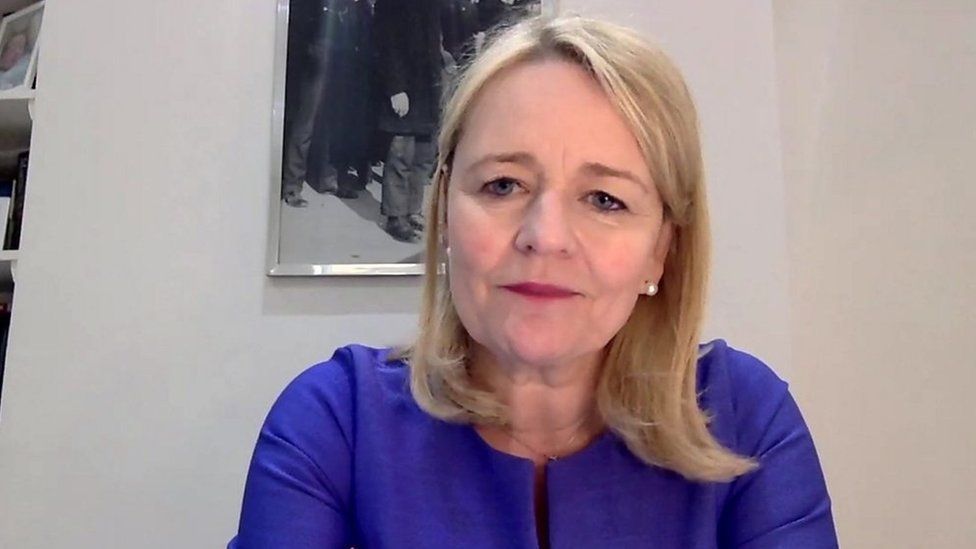
The second largest trade union in the United Kingdom is requesting that the newly elected Labour administration implement an emergency wealth tax of one percent on the assets of the ultra-wealthy. This tax would be used to pay for a ten percent increase in pay for public sector employees and to fill more than one hundred thousand positions in the National Health Service.
There are numerous resolutions that will be presented to the Trades Union Congress, which will gather in Brighton the following month, that will highlight tensions between Keir Starmer’s government and various elements of the union movement. The demand that Unite made is one of these motions. It comes at a time when Rachel Reeves is getting ready to present her first budget as chancellor, which is scheduled to take place on October 30.
As the prime minister and Reeves reaffirm their commitment to fiscal responsibility and emphasise the necessity of making difficult choices in order to bring the economy back to health, members of parliament and ministers affiliated with the Labour Party believe that the TUC conference may be the moment when an effective truce between many unions and Labour, which has been beneficial to Starmer’s campaign for the general election, may begin to break down.
There are other important trade unions that are getting ready to press for additional policy changes from Labour. These changes include the abandonment of the two-child benefit cap, which Starmer has so far resisted, and the reversal of the recent decision to end winter fuel payments for millions of pensioners, which has been causing a serious backlash among Labour backbenchers.
Unite’s motion to the TUC conference goes much further than that, saying that, with local authorities in financial peril, an urgently needed boost to public investment cannot wait for economic growth to materialise at an unspecified point in the future. This is in contrast to the fact that Reeves is believed to be considering increasing the taxes on capital gains and inheritances in the budget.
The plan that Unite has is to impose a tax of one percent on the assets of individuals who have more than four million pounds. According to Unite, this would bring in twenty-five billion pounds annually, which would be used to fund investments in public services and prevent a return to austerity. According to the plan, an individual who possesses assets worth six million pounds would be subject to a tax rate of one percent on the two million pounds that exceed the threshold of four million pounds. These assets would consist of real estate, shares of stock, and bank accounts; however, mortgaged property would not be included in this category.
Research reveals that the top fifty wealthiest households in the United Kingdom currently possess assets that are worth about half a billion pounds.
The general secretary of Unite, Sharon Graham, made the following statement: “The resolution that Unite presented to the TUC regarding the economy calls things by their true names.” The British economy is in a state of disrepair.

Britain was the driving force behind one of the world’s first industrial revolutions. However, as a result of decades of inadequate investments in manufacturing and national infrastructure, we are currently slipping exorbitantly behind other nations in the transition to net zero and the new technology age.
We need to make significant investments in our broken public services as well as in industry in order to guarantee a prosperous future for the people who work in Britain and the communities in which they live. Simply waiting for growth is not going to be enough to bring in the necessary funds for that.
Despite the fact that Unite was a significant donor to the Labour Party in 2019, the organisation did not contribute to the election efforts this year. The reason for this was because the election manifesto did not go far enough in preserving workers’ rights and jobs in the oil and gas industry.
The RMT transport union has also presented a motion to the conference that calls for the abandonment of what it refers to as “unnecessarily restrictive and arbitrary fiscal rules” that restrict the government’s capacity to borrow money. The motion also calls for a wealth tax to be implemented in order to support public investment.
The PCS civil service union’s amendment to the original motion calls on the Trades Union Congress (TUC) to “oppose cuts to the winter fuel allowance” and “demand appropriate taxation of corporations and the super-rich to fund the social security improvements identified in this motion.” Additionally, the United States Department of Labor (USDaw) has put forth a motion that calls for the repeal of the two-child benefit cap.
Additionally, it is anticipated that the TUC would advocate for “pay restoration” in order to compensate for a decade of real-term salary reductions for workers in the public sector.
Such demands will exacerbate the tensions that already exist between Labour and its union supporters in the wake of a number of pay agreements reached between the government under Starmer and striking workers in a variety of industries, including healthcare and the railways.